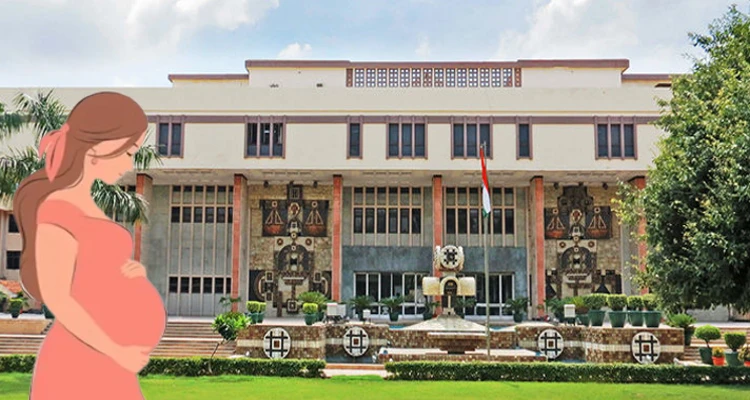
The Delhi High Court has granted permission for the medical termination of a 27-week pregnancy to a widow, taking into account the change in circumstances and her mental state.
The widow suffering with mental trauma following her husband’s demise, received approval from Justice Subramonium Prasad, who considered both the petitioner’s submissions and the psychiatric evaluation report.
A bench of Justice Prasad emphasized the change in the petitioner’s martial status, noting her newfound widowhood. Referring to the AIIMS psychiatric evaluation report, he acknowledged the extreme trauma the petitioner was experiencing due to her husband’s death. Concerned about the potential impact on her mental stability, Justice Prasad expressed that continuing the pregnancy might lead to suicidal tendencies.
In the judgment, Justice Prasad stated, “This Court is of the opinion that, at this juncture, the petitioner should be permitted to terminate her pregnancy because allowing the petitioner to continue with the pregnancy can impair the mental stability of the petitioner as she is showing suicidal tendencies.” The court specifically authorized the petitioner to undergo the termination procedure at AIIMS, even though she had surpassed the 24-week gestation period.
While delivering the verdict, the bench referred to the legal precedent set by the Supreme Court in X vs. Principal Secretary, Health and Family Welfare Department, Govt. of NCT of Delhi and Another. The apex court had affirmed a woman’s prerogative to evaluate her life and make decisions based on changing circumstances, emphasizing the right to reproductive choice, including the right not to procreate.
However, the Delhi High Court emphasized that this order was specific to the peculiar facts and circumstances of the case and should not be considered a precedent. The judgment followed the court’s reserved decision after hearing the petitioner’s counsel and assessing further psychiatric evaluations.
The petitioner’s counsel, Dr. Amit Mishra, argued that the petitioner, initially admitted to the hospital, left as doctors urged her to continue the pregnancy. Mishra contended that compelling her to continue the pregnancy amounted to an invasion of her privacy.
The court, considering the petitioner’s altered mental status and citing the apex court’s judgment, justified the termination even at this advanced stage. The High Court clarified that the order applied uniquely to this case and should not be treated as a precedent.
Earlier, the vacation bench of the Delhi High Court had sought input from the Department of Psychiatry at AIIMS regarding the impact of permitting the pregnancy to continue for its full term on the petitioner’s severe depression and suicidal ideation. After a detailed psychiatric evaluation report, the court ordered further assessment.
The AIIMS Hospital’s Department of Psychiatry reported that the petitioner, evaluated on December 28, 2023, exhibited severe depression with suicidal ideation. Due to the risk to herself and the fetus, the patient was advised admission and is currently admitted to the psychiatry ward at AIIMS Hospital.
Before these developments, the High Court had directed AIIMS to conduct a psychiatric evaluation of the 23-year-old widow seeking permission for the medical termination of pregnancy. Despite the medical board’s initial reluctance to recommend termination, the court, after hearing the petitioner’s counsel and considering her mental and physical trauma, issued directives for further evaluation. The court had previously instructed AIIMS to constitute a medical board and examine the petitioner, with a specific focus on her readiness for the termination procedure.




